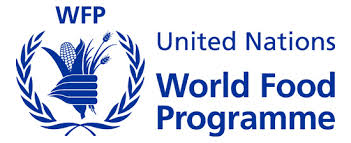….Targets 7.3Mn Beneficiaries
The United Nations World Food Progamme (WFP) has announced its partnership with the Nigeria and other countries in West and Central Africa region to flag off its 2024 food assistance program for the three-month period from June to August this year.
The organization made this disclosure in a statement, hinting that the implementation of the programme would reach about 7.3 million people in the region despite the huge population of people in need of food security.
According to the WFP, the targeted number of people to be reached through the programme remains short of the number of people estimated to be facing severe food security challenges in the region, adding that the projected number of people set to face severe hunger during the lean period (June-August) is expected to reach 55 million in West and Central Africa region.
The organization stated: “The United Nations World Food Programme is ramping up its lifesaving food and nutrition assistance programme in West and Central Africa, targeting 7.3 million during the ongoing June-August lean season – when food stocks run out and hunger peaks. The programme – which kicks off in June – supports national governments’ lean season response plans in Burkina Faso, Cameroon, Central African Republic, Chad, Mali, Mauritania, Niger and Nigeria.
“The number of people WFP will target as part of the programme could expand to 12 million people if adequate funding allows. But dwindling resources available for humanitarian operations means that despite near-record level needs, WFP has been forced to assist fewer people that originally planned”, it added.
Currently, available data indicated that West and Central Africa region faced one of its worst food security crises over the past decades as surging inflation continued to hamper economic reforms of many countries in the region.
Analysts link the hunger and nutrition crisis in the region to sundry factors, including the combined effects of conflicts, climate change crisis, high food prices as well as economic shocks, which comprised market disruptions, weakened economic activities, depreciating national currencies, rising fuel costs and agricultural inputs.
They observed that these challenges have taken a huge toll on people and economic activities in many of the countries in the region, particularly Ghana, Sierra Leone and Africa’s biggest country by population – Nigeria.






